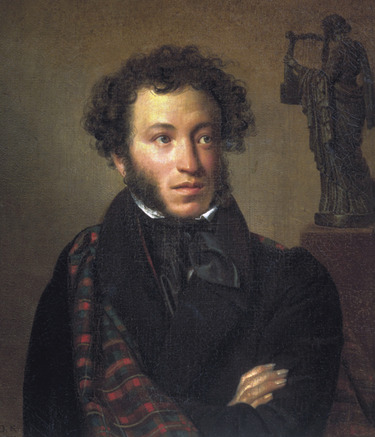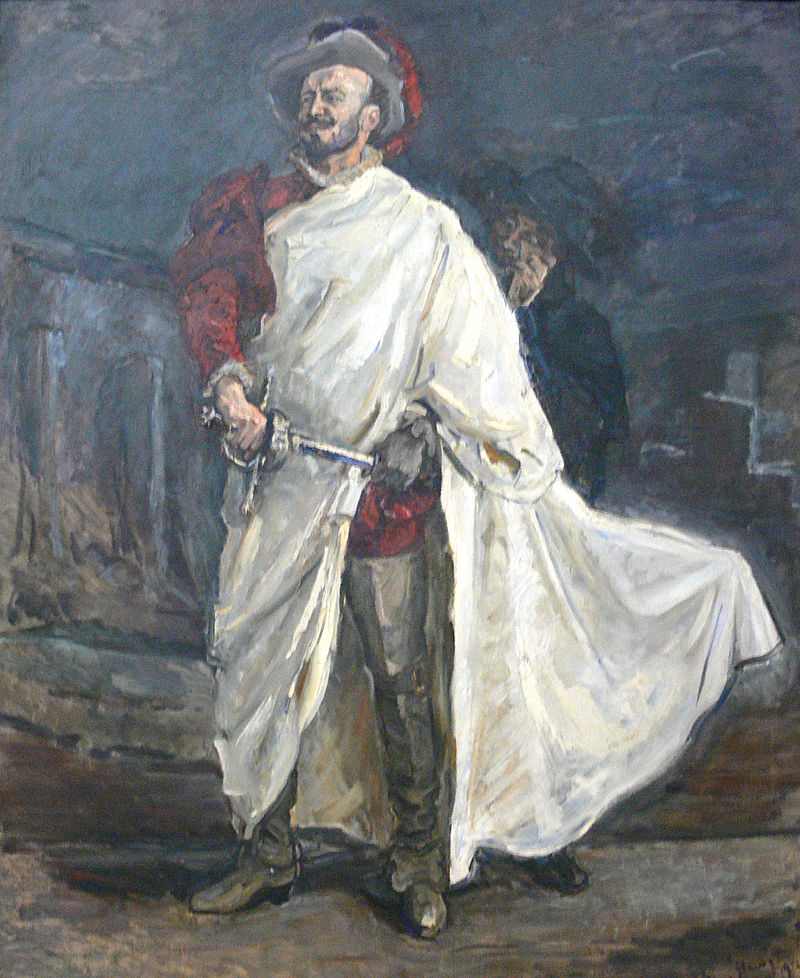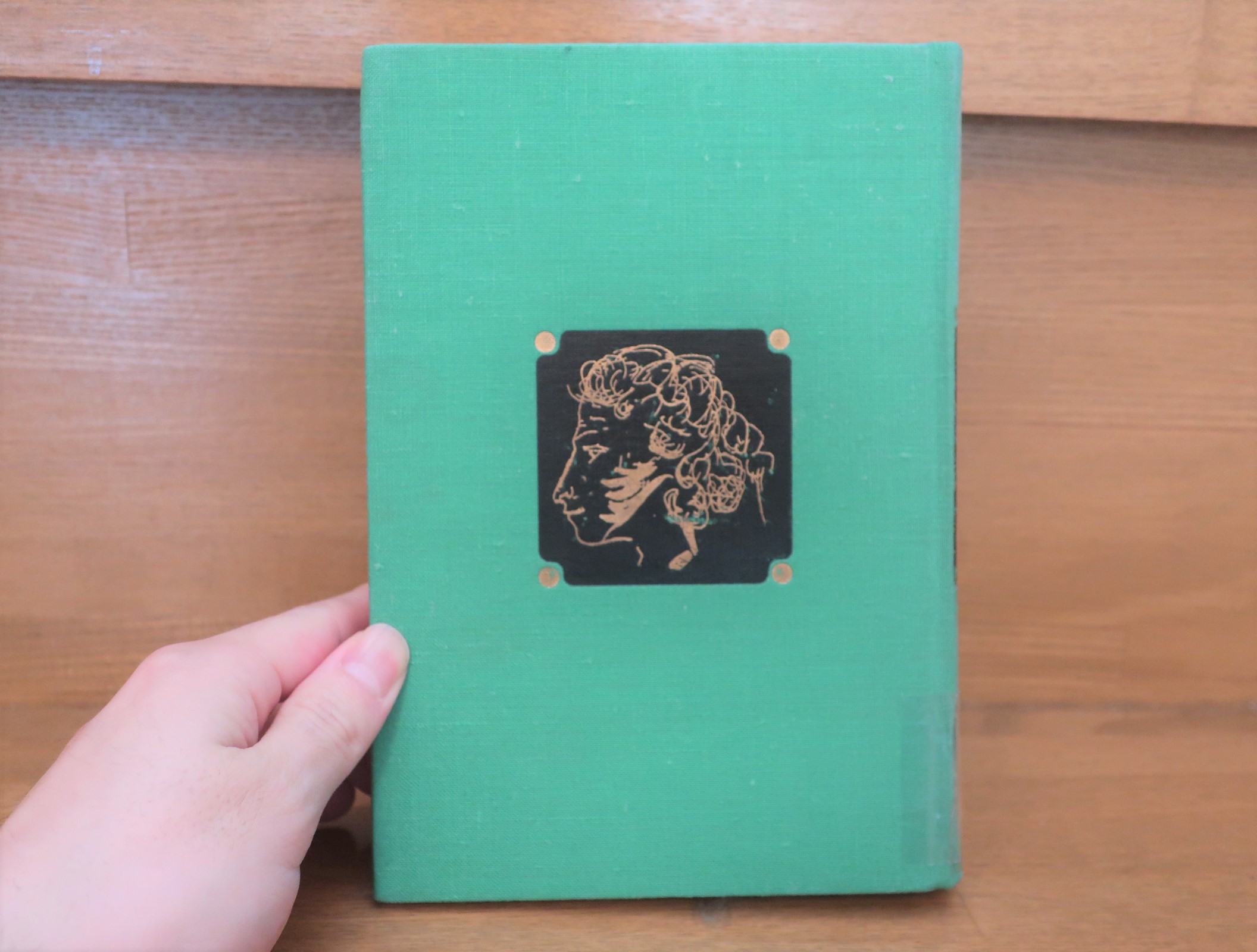Synopsis of Pushkin's "The Stone Guest" - A masterful tragedy that is a Russian adaptation of "Don Juan," a synonym for playboy.

Alexander Pushkin (1799-1837)Wikipedia.
The Stone Guest was written by Pushkin in 1830.
I read "Ishi no Kyaku" (The Stone Guest) in "The Complete Works of Pushkin 3: Folk Tales and Dramatic Poems" translated by Nobuyuki Kitagaki and Shigeo Kurihara, published by Kawade Shobo Shinsha.
Let's take a quick look at the commentary at the end of the book about this work.
Pushkin owes the material for his "The Stone Guest" to the Don Hwang legend, which has been passed down through the ages and is widely known in Europe. The legendary figure of Don Hwang has always inspired artists to create new works. The first artist to use the figure of Don Hwang and the theme of the "stone guest" was Gabrinil Tellíez, a Spanish priest known by the pen name Tirso de Molina, whose "The Colorist of Seville and the Stone Guest" (1630) is considered the prototype for the Don Hwang statues known throughout the world today.
Pushkin knew Molière's Don Juan - The Banquet of the Stone Statues (1665), Mozart's opera Don Giovanni (1787), and Byron's Don Juan (1819-24). (The title is taken from the libretto of Mozart's opera by Da Ponte), and his portrayal of Don Juan is not a type of the existing Don Juan figures in world literature, but a peculiar figure. It is a unique figure. It is a demythologization of Don Hwang. Belinsky called it a "titanic creation.
Kawade Shobo Shinsha, translated by Nobuyuki Kitagaki and Shigeo Kurihara, Pushkin Complete Works 3: Folk Tales and Dramatic Poems, p. 619-620
Some line breaks have been made.
We often hear the term "Don Juan."

The origin of "Don Juan" is said to be the work "The Colorist of Seville and the Stone Guest" written in Spain in 1630.
Don Juan's strong personality as a beautiful, lustful, and debauched man continued to influence subsequent writers and artists, and "Don Juan" became a synonym for playboy and womanizer.
Don Juan is spelled Don Juan in Spanish.
Interestingly, this changes to "Don Giovanni" when read in Italian style and "Don Juan" when read in French style.
So this is where Mozart's "Don Giovanni" also came from.
Don Juan," "Don Giovanni," and "Don Juan" were all names I had heard before, but I had no idea that they were all the same person.
Now, as for "Don Juan," Pushkin tried to create a tragedy based on the motif of Don Juan and his stone guest from "The Colorist of Seville and the Stone Guest.
As noted in the commentary above, Pushkin did not adopt the pre-existing image of Don Juan as is.
His portrayal of Don Juan is a playboy, but he is not a frivolous man who plays with women and then discards them, as in Spain, Italy, or France.
Don Hwang in "The Guest of Stone" is portrayed as an extremely passionate, but not calculating, sincere, decisive, and daring man. He is also a poet (Don Hwang is the author of the song sung by the actress Laura in the second scene).
He is a passionate suitor, but not a cold-blooded prodigal, a professional colorist. He does not have the Molièrean don Juan attitude of playing with a woman's heart and running away with it.
Looking at his relationship with the three women - Iníez, Laura, and Doña Anna - there is a beautiful nostalgia for love, first of all, in his emotion as he recalls "poor" Iníez, now deceased ("That woman had / only a small element of real beauty. "She had only a few elements of true beauty. Except for her eyes, / her eyes. Her husband was a brusque, unreliable fellow, / I found that out too late. ...... Poor Iníez! ("......").
The young actress Laura is a talented, vivacious, and uninhibited woman, a female version of Dong Hwan, to whom Dong Hwan is "my faithful friend and my lover as capricious as the wind. Dong Hwan's love for her is bright, spontaneous, and full of friendship.
The third woman, Doña Anna, is a delicate, shadowy figure, a mysterious entity that mysteriously combines piety and charm, modesty and passion, simplicity and cynicism.
Don Hwang feels a final, true love for Doña Anna. The old seducer is no more than a child in front of her, and he has no time to show off his original skills, so he has no choice but to "improvise a love song the way a poet improvises a love song.
And finally, there is no insincerity in Don Hwang's words as he reveals his true identity in front of Doña Anna, repents for his past sins, and at the same time confesses his love for her. (My weary conscience may or may not be able to bear the weight of so many evils. /But since the day I saw You for the first time, I feel / as if I have been completely reborn. /Since I have come to love you, I have come to love virtue. / And for the first time, with a humble heart, / I have come to bend my trembling knees / before virtue.) In Don Hwang's love for Doña Anna, eroticism is not overshadowed.
Kawade Shobo Shinsha, translated by Nobuyuki Kitagaki and Shigeo Kurihara, Pushkin Complete Works 3: Folk Tales and Dramatic Poems, p. 620
Pushkin's Don Juan seems to be different from the conventional image of Don Juan.
I am not an expert, so I can't say for sure, but I felt from reading the piece that perhaps Pushkin was trying to portray a Russian image of Don Juan.
In the above commentary, it is said that "Don Hwang in "The Stone Guest" is portrayed as an extremely passionate, but not calculating, sincere, decisive, and daring man. He is also a poet.
However, Don Hwang and Doña Anna are doomed to be united. Don Hwang dies when a stone statue of the Knight Commander, killed by Don Hwang's sword, appears as an invited guest.
The stone guests are the agents of a jealous fate. The stone guest in Pushkin is not a religious figure, an angry heavenly messenger to punish immorality and debauchery, as is the case with other stone guests. It is a symbol of a harsh fate that brings an abrupt end to Don Hwang just as he is about to awaken to true love and approach happiness.
Kawade Shobo Shinsha, translated by Nobuyuki Kitagaki and Shigeo Kurihara, Pushkin Complete Works 3: Folk Tales and Dramatic Poems, p621
The foreshadowing of the title of this work, "Stone Guests," is finally recovered here.
Just as Don Juan and Doña are about to be united, a stone visitor appears before Don Juan as a symbol of a harsh fate that will bring an abrupt end to their happiness.
I can only tell you that you must read it to experience the horrifying power of this scene.
The catastrophe comes just as the passionate Don Juan has reformed and is now awakening to true love for the first time.
Such a tragedy was depicted by Pushkin in "The Stone Guest.
As I mentioned earlier, Don Juan originated in Spain with "The Colorist and the Stone Guest of Seville," and has since continued to inspire artists around the world.
However, as for the plot, many of the works had a strong religious, or Christian, influence, as the commentary states.
The storyline often involved the appearance of a stone guest as a heavenly messenger to chastise those who indulged in immorality and debauchery, and to punish Don Juan.
But Pushkin has reimagined it and rewritten it as a story of catastrophe by an agent of fate who is jealous of a happy future. Herein lies Pushkin's originality.
In this way, Pushkin opened up to the Russians a different view of the world than in Europe.
Dostoevsky's high regard for Pushkin was due to his unique view of the world and his ability to refine it into something that resonated with the Russian people.
The more I read about Pushkin, the more I am reminded of his innovations and the influence he has had on later generations.
This piece was also very interesting. Highly recommended.
The above is a synopsis of Pushkin's "The Stone Guests" - the subject of "Don Juan," synonymous with playboys.
Next Article.
Related Articles





































